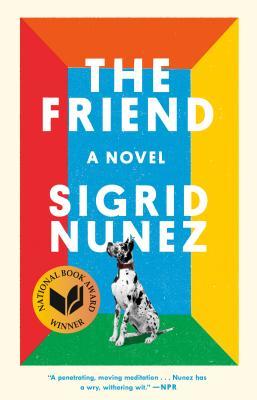The Friend by Sigrid Nunez

My first encounter with Sigrid Nunez was through her novel What Are You Going Through, and I was taken by her digressive form, her prose, the accuracy of her paragraphs and insights, and the general shape of the drama. I felt at times enthralled by it and liked the poetic quality of the whole. Lately I read her earlier novel The Friend, the one that won her the great prize. My response here is much less positive, though the parts of the later book that I admired are carried over here. Again one encounters the stream-of-intellect approach, the lovely and even gorgeous paragraphs, the sense that the parts are building to a whole. But it felt so much like the other book of hers – another wrestling with suicide, another series of images of the harshness of the world, another blend of literary criticism into the narrative, only moreso. I put the book down every few pages to breathe, having begun to feel claustrophobic. I have a prejudice against books about writers; there is a sense I get that such a book is really a room full of crazy mirrors. This book is also about creative writing teachers and academia to a certain degree and these are also territories that leave me cold. So I was not disposed to enjoy the book no matter how well it was done. If it were not for the passages about Apollo, the dog, I would have been many days reading what is actually a brief book that one ought to finish in an afternoon. It was not that I was not engaged by it; it was more a fact of repulsion. Having lived a writing life, I want to escape from it when I read. That’s hard enough at my age, and impossible when the book is a depressed account about a writer’s suicide and another writer’s grieving struggle with the idea of it. In reading the passages about the lessening importance of literature it occurred to me once again that literature is dying of its own dead weight, and if one writes fiction it behoves one to remember that while novels might be less important stories certainly are not. Stories are everywhere. Even in The Friend, it is the story of the dog – the poor mundane narrative that is one of those conventions of fiction that important writers so often despise – that saves the book from its exploration of rot. I am being unfair and I am aware of it but in this case I’ll risk it. There are extraordinary passages of writing, like the chapter about the women who are exploited and trafficked, whose suffering feels so real; but to set these lives against the sad end of man who killed himself because he couldn’t lay his students any more (an unfair generalization but I am indulging myself) appeared such a strange choice. Almost manipulative. I still care very much for the other Nunez novel that I read and will be grateful for that. And also leave it at that.
